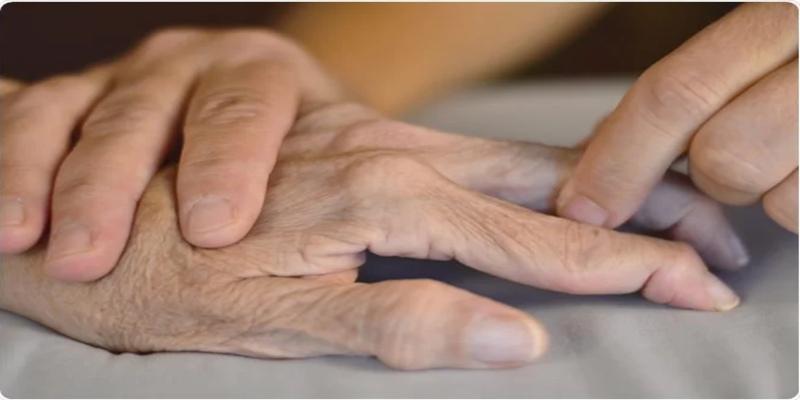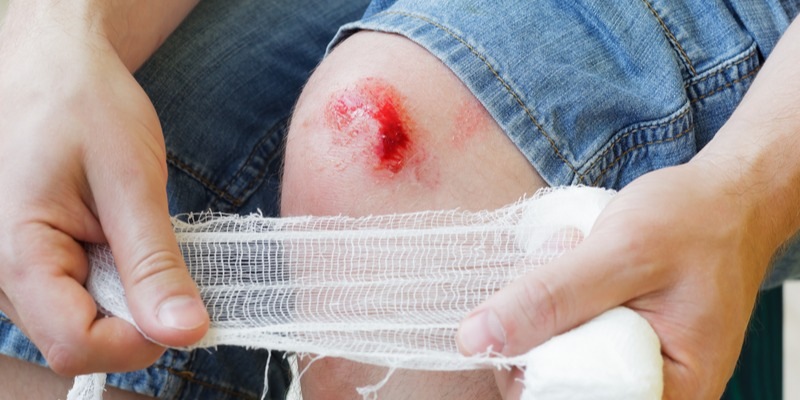Rheumatoid arthritis affects approximately 1.3 million adults only in the U.S., which is 0.6-1% of the country's population. People who have rheumatoid arthritis can experience symptoms like joint pain, stiffness, heavy fatigue, and swelling, making it difficult to deal with.
However, early diagnosis can help you prevent the case from worsening by going for proper treatment. So keep reading to find some remedies and prominent symptoms that must alarm you to go for a doctor's appointment for an accurate diagnosis.
let's begin
Rheumatoid Arthritis Symptoms
Common signs and symptoms of Rheumatoid arthritis include:

Joint pain
Under this condition, the discomfort is caused in different parts of the body, which are used to aid movement. Thus, it restricts the person from doing daily chores efficiently.
Fatigue
It is a situation where you continuously feel discomfort and burnout. The body is never energized, no matter how much healthy food you eat or take supplements. This is one of the most prominent signs of arthritis that must not be ignored at any cost.
Deformity and swelling
Swelling might occur on different body joints, such as elbows, finger joints, knees, neck, etc. You can witness mild redness and bumpy skin as a sign of swelling.
Finger deformities
Fingers might lose their original structure, and the grip loosens on everything. To find if you are suffering from finger deformities, hold objects of different sizes and weights and notice if you can have each with equal force and grip.
Tenosynovitis
It is a condition where swelling occurs around the lining of the tendon. If you notice anything, do not wait to see a doctor.
Carpal tunnel syndrome
It is a medical condition that compresses your median nerves. Thus causing a disturbance in your carpal bones.
Rheumatoid nodules
The condition causes inflammation under the skin that forms on the elbow, heels, and toes. You feel extreme pain while doing some mild tasks such as walking, eating, drinking, etc.
10 Natural Remedies for Rheumatoid Arthritis (Home Remedies, Such As Therapy, Exercise, Tai Chi, and More)
Physical therapies
Research from the Centers for Disease Control and Prevention (CDC) states that performing targeted physical therapy can help people suffering from RA. Therapy may involve stretching exercises and alternating between hot and cold.

Exercise
Along with performing targeted stretches, some energetic, low-stress exercises, such as swimming or cycling, can strengthen the muscles around the affected joints. This can reduce the overall impact on the joints and benefit people with rheumatoid arthritis.
Cognitive Behavioral Therapy
In addition to physical activities to relieve stress, therapy or counseling may help people living with RA-related pain.
The most common type of therapy used to cure people living with RA is cognitive behavioral therapy. Some other modalities may include psychotherapy and mindfulness.
Heat and Cold
Although there is limited evidence about the benefits of applying heat or cold to relieve RA, some researchers say that using heat or cold on the affected areas may temporarily relieve joint pain.
Note: Never apply ice directly on the skin. Use by wrapping it in a towel.
Tai Chi
Tai Chi is another natural treatment for rheumatoid arthritis. It is a Chinese martial art that combines slow, gentle movements with awareness and deep breathing. Studies from trusted sources suggest that taking group tai chi classes from a knowledgeable instructor can reduce anxiety and improve social support in people living with RA.
Anti-Inflammatory Diet
RA is characterized by inflammation in joints, and following an anti-inflammatory rheumatoid arthritis diet can help reduce symptoms.
Research published in 2015 elaborated on the effects of a plant-based diet on the levels of proteins known to cause inflammation.
They concluded that a diet rich in fresh fruits and vegetables, whole grains, legumes, nuts, and seeds significantly reduces inflammation and benefits people with rheumatoid arthritis.
Acupuncture
Acupuncture is a traditional Chinese treatment that helps relieve pain. In this treatment, needles stimulate specific points in the body.
Several studies have indicated that acupuncture is beneficial for patients with rheumatoid arthritis. It improves the function and quality of life by reducing inflammation and disease activity.
Application of the Turmeric
According to several studies, Turmeric contains an active ingredient, curcumin, that helps reduce inflammation associated with rheumatoid arthritis. Moreover, researchers suggest that curcumin is an effective painkiller for treating the pain of osteoarthritis.
Evening Primrose Oil
Evening primrose oil is another supplement that, in conjunction with fish oil supplements, could help reduce inflammation and benefit people living with rheumatoid arthritis.
More research is going on to check the effectiveness of evening primrose oil for RA.
Fish Oil Supplements (Omega-3 Fatty Acids)
Fish oil supplements are a rich source of omega-3 fatty acids, essential fats to consume, especially for people with RA. Omega-3 fats help to limit disease activity and inflammation and even delay the need for medication. Omega-3 is also present in various other foods that you can consider if you are someone who prefers to take fish oil supplements. Ask a professional to help you find food that fits your condition.
Note: Always consult your GP or medical professional before trying these supplements.
NSAIDs
Research from trusted resources suggests that taking OTC medications such as nonsteroidal anti-inflammatory drugs (NSAIDs) also helps reduce pain and inflammation. That's why they are effective against rheumatoid arthritis symptoms. Your doctor can prescribe Anaprox, Celebrex, Daypro, Mobil, and Felden as NSAIDs.
Some of the NSAIDs, including rofecoxib and diclofenac, are involved in heart disease risks. Therefore, avoid using them.
Final thoughts
On the bottom line, there are different symptoms of rheumatoid arthritis that lead to joint pain. But there is no need to worry, as multiple natural remedies for rheumatoid arthritis help reduce pain, inflammation, and other symptoms.
Some prominent remedies include taking an anti-inflammatory diet, exercising, taking OTC medications, practicing mindfulness, Tai Chi, therapy, Turmeric, and more.
Some of these practices work better for rheumatoid arthritis patients compared to others. Thus, to achieve maximum results, apply these strategies with other medications and remember to consult your doctor or a therapist.




